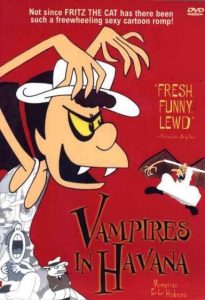
“Times have changed. It’s not like the Old Days — when we can do anything we want. A refusal is not the act of a friend. If Don Corleone had all the judges, and the politicians in New York, then he must share them, or let us others use them. He must let us draw the water from the well. Certainly he can — present a bill for such services; after all — we are not Communists.”
(Barzini, the Godfather III, Francis Ford Coppola)
The Cinema has a powerful potential to help us understand the World Order in a more subtle and comprehensive way. In the tradition Cinema-politics there are two main currents of thought: the first one argues that the cinema has to be used as a tool for ideological indoctrination, the typical example being the Soviets´ Films; the second one says that the Cinema has to be used just to promote critical thinking through the possibility to share technical concepts with the audience. Probably, the second approach could be the most effective if it´s taking account the postmodern times.
Nowadays, the Cinema has become a useful instrument to create values, maintain cultural hegemonies, impose cultural identities and to further political positions; in fact, as Walter Benjamin said “the nature who speaks to the camera, it´s not the same that one which speaks to the humans ‘eye” and in this line of ideas the the key concept to understand is “abstraction”.
It is important to recognize that neoliberalism’s greatest victory, rather than the destructions of the unions or the privatization of the state, has been the people’s unnoticed indoctrination in its dangerous discourse; it´s big triumph has been the colonization of the human minds (Leftists and Progressive included). The Neoliberalism has managed to build a cultural consensus among the people with the greed and individualism as (anti)values in part because the mass Medias and the Cinema. This postmodern consensus has converted “to liquid”, or casual, most social relations,. According to this ideal everything must be casual, the political struggles are casual, the friendships are casual, and the love and affective relationships are casual (the movie to explore this tension could be “The dreamers” by Bernardo Bertolucci); the world is a big Super Market where all human beings are simply commodities and this ideal could be traduced in pleasure, just pleasure, and nothing more than pleasure, or to put it in North American terms “You Only Live Once (YOLO)”. Thus, the great strategic and tactical mistake kn the Leftist family has been to fail to recognize this new reality. Marx, in a visionary way, on the Communist Manifest also recognizes this Capitalist model characteristic, “[…]These labourers, who must sell themselves piecemeal, are a commodity, like every other article of commerce, and are consequently exposed to all the vicissitudes of competition, to all the fluctuations of the market[…]”. This hegemony could be challenge by a counter-hegemony trough the same cultural device. As Fidel said, and Gramsci and Buttler understood very well, the main (but not only) political battle is the battle of ideas.
It is imortant to stress the neccesity of “The other” alongside the Cinema speech. Therefore, it will be necessary to review Hollywood films and Cinema Art films. In the Hollywood tradition it is possible to find both hegemony and counter-hegemonic films. For example, “Batman: the dark knight arises” is an interesting movie to understand how the mainstream Cinema works, in this film the popular struggle and the revolutionary ideal are reduced to the Bane character and his movement “The shadow League”, a terrorist organization that pretends to change the World Order through its total destruction. Thus, the implicit message for the audience was, “Hey, be aware of those Leftist and Progressive forces who want to change the social order, because, at the end of the day, they are kind of Banes. Was it a coincidence or an intentional strategy to release this film in the middle of the “Occupy Wall Street” protest in the USA? Another good example of the Hollywood style could be the James Bond movie “Skyfall”. In this Bond film the villain is Raoul Silva (with a fantastic performance by Javier Bardem) a former MI6 agent who worked for M in Singapor. Silva is a cyberterrorist who is releasing the identities of field agents to seek revenge against MI6. Again, was it a coincidence or not to release this film in moments where Julian Assange and Wikileaks were trying to show the world what the real Imperial political order is?
Despite the huge advantage that neoliberalism has in the cultural struggle our answer, paraphrasing Humprey Bogart in “Casablanca” , is “We will always have Paris” or “We will always have HOPE!”. So, there are ways for deconstruct Hollywood speeches, to awake our deepest human being essence throught the South Global films (Pontecorvo, Meirelles, Gutierrez Alea), to link the Socialism, Politics and Love through the Ken Loach films, to explore the gender relations and women condition around the Fellini movies, the “Nouvelle vague” French films, and “Lolita” by Kubrick and to understand the aesthetic of the violence through Par Chan-Wook movies.
